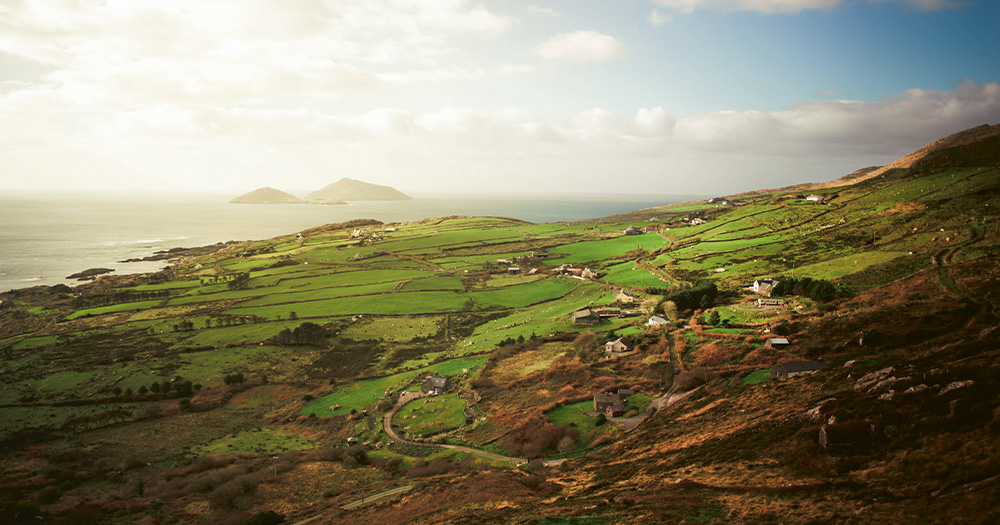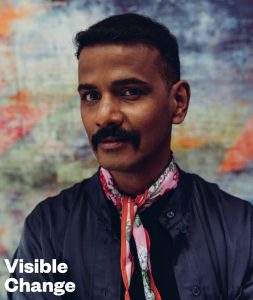If imitation is the sincerest form of flattery, then adapting the subtitle of Maeve Higgins’s book, Maeve in America, for this piece is obviously true love. Relative to each other, we are both from somewhere else. Maeve and I are both pursuing dual citizenship, she with the United States and me with Ireland. Of course, she’s been at this much longer than I have, and the two processes are quite different.
But the waiting feels universal to me, regardless of how complicated the US immigration system is versus how friendly Ireland’s is.
In the first place, I am in the process of registering my foreign birth. My claim to Irish citizenship is based solely on ancestry, given both of my maternal grandparents were born in Ireland. Grandpa Flynn was born in the village of Shanthallah, Ballindine, County Galway in 1896.
Grandma Flynn arrived in 1907 in the village of Ballinross, Cloonfad, County Roscommon. Her name was Margaret Mary Mullarkey and her mother was also a Mullarkey. As my late great Auntie Mary wrote in a family history, if anyone tells us that we’re “full of Mullarkey,” they are right.
There are many personal reasons why I am pursuing Irish citizenship. The most obvious one is that I am half Irish. And I’ve always been taught that when something reaches a 50 percent threshold, you round up. But there are other reasons. Chief among them is that old feminist saying, “the personal is political.” And how. If recent US history has taught me anything, it is never to take my American privilege for granted. Of course, this is exactly what I’ve been doing my whole life. Quoth the Raven: Nevermore.
Although my heterosexual career was relatively brief, I was equally unconscious of my straight privilege way back when. After coming out in 1992, such privilege suddenly seemed super obvious, which makes me wonder: how does pursuing dual citizenship compare to coming out?
For starters, both citizenship and sexual orientation are ways we identify ourselves in the world. And no matter what we do or don’t do formally in the eyes of the state, we all have status in each domain. For me, pursuing dual citizenship feels rather familiar to coming out, in a good way. While I may be from somewhere else, I still call Earth home, and am lucky to have such a wonderful family.
When I came out to my 100 % Irish mother, we were driving in a small town also known as Lesbianville, USA. My mother’s 100 % Catholicism offers context for her immediate response: “But it’s not natural.” It didn’t take long for mom to acknowledge love and attraction occur in nature, and therefore are natural. After many long conversations, I understand how valid her concerns were about my pursuit of life, liberty, and happiness.
Two years ago, I told mom I was finally serious about applying for Irish citizenship. She was all over it, digging up her father’s vital records to send to me. Of course, I also needed a copy of her birth certificate, which she forwarded as well. When I finally saw all these records in front of me, I felt the same deep connection to a larger group that I recall when I came out.
Coming out allows us to create our chosen family, which the LGBTQ+ community is well-known for. Not only do we create family, we also curate it in our own specific ways. To wit; L retreats, G brunches, B flags, T ballroom competitions, and Q+ families. We are truly one big, happy family!
This article originally appeared in Issue 368 of GCN, which you can read here.
© 2021 GCN (Gay Community News). All rights reserved.
This article was published in the print edition Issue No. 368 (October 1, 2021). Click here to read it now.
Support GCN
GCN is a free, vital resource for Ireland’s LGBTQ+ community since 1988.
GCN is a trading name of National LGBT Federation CLG, a registered charity - Charity Number: 20034580.
GCN relies on the generous support of the community and allies to sustain the crucial work that we do. Producing GCN is costly, and, in an industry which has been hugely impacted by rising costs, we need your support to help sustain and grow this vital resource.
Supporting GCN for as little as €1.99 per month will help us continue our work as Ireland’s free, independent LGBTQ+ media.

